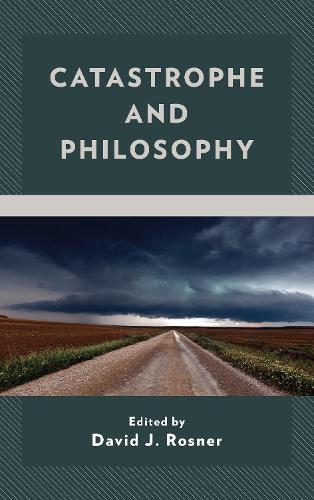
Catastrophe and Philosophy
(Hardback)
Publishing Details
Catastrophe and Philosophy
By (Author) David J. Rosner
Contributions by JeiDong Ryu
Contributions by Sarah K. Corrigan Sarah K. Corrigan
Contributions by Kwon Jong Yoo
Contributions by John E. Ross
Contributions by Steven Cresap
Contributions by David J. Rosner
Contributions by Diana Prokofyeva
Contributions by David Wilkinson
Contributions by Carsten Meiner
Bloomsbury Publishing PLC
Lexington Books
4th December 2018
United States
Classifications
Professional and Scholarly
Non Fiction
Philosophical traditions and schools of thought
Western philosophy from c 1800
363.3401
Physical Properties
Hardback
370
Width 161mm, Height 238mm, Spine 28mm
699g
Description
This book takes a different approach to the history of philosophy, exploring a neglected theme, the relationship between catastrophe and philosophy. The book analyzes this theme within texts from ancient times to the present, from a global perspective. The books focus is timely and relevant today, as the planet is certainly facing a number of impending catastrophes right now, e.g., environmental degradation, overpopulation, the threat of nuclear war, etc.
Reviews
The book presents a unique way of doing philosophy. It offers points of view from diverse scholars to deal with some of the most pressing problems faced by humanity including existential catastrophes such as environmental degradation, global warming, overpopulation, the threat of nuclear conflagration, and widespread economic upheaval. Through these multiple perspectives, Professor David Rosner is able to capture the sense-making activity of the traditional philosophy, thus resuscitating philosophy and its sustained relevance during the 21st century. A must read for all those who want to make sense of the human crises in all domains of life posed by the super-abundance of useless and useful information that is bombarded on the mind of the 21st century person. -- Ashok Kumar Malhotra, Emeritus SUNY Distinguished Teaching Professor of Philosophy
In this book David Rosner skillfully brings together a number of essays that deal with maybe the most significant issue of any given period of time: catastrophe that radically affects our lives and our civilization. It seems that Emil Cioran is right when he says that civilizations begin in myth and end in doubt. A catastrophe brings us to a major dilemma related to the fundamental need of making sense in life and the non-sense and doubt that it implies and generates. The book illustrates powerfully how catastrophes change philosophies and worldviews and how changed philosophies might help deal with these types of extreme situations. This is a work of high relevance to our contemporary troubled world on many fronts as it offers empowering and valuable guidelines that could help in time of need. -- Theodor Damian, Metropolitan College of New York
Author Bio
David J. Rosner is associate professor of values and ethics, School for Business, Metropolitan College of New York.
